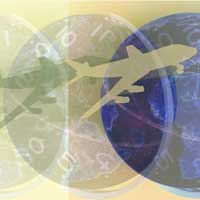Business travel continues to increase in the UK: nearly 10m business trips abroad were made in 2006, according to the Office of National Statistics and half of those were made by the smaller business, reports the SME Travel Club. As long as a small business sticks to procurement habits that are good for the bottom line, membership of loyalty and reward programmes can make financial sense.
One fashion business proprietor whose wallet is stuffed with numerous loyalty cards reveals that the benefits are not just lavish treats to enjoy in her spare time. "I once booked into a hotel in Paris where I was due to host a business meeting and didn't like the room," she says. "Because I had the Hilton HHonors loyalty card and was a repeat customer, it gave me the clout to ask for a better room."
‘I once booked into a hotel in Paris where I was due to host a business meeting and didn't like the room. Because I had the Hilton HHonors loyalty card and was a repeat customer, it gave me the clout to ask for a better room'
Double winners
Service providers recognise the dual identity of businesspeople who spend company funds and earn rewards to enjoy in their spare time; their programmes reflect what is known in the loyalty trade as ‘double dipping'.
"I can collect points for the company, and for me," explains Stuart Evans, general manager of ICLP Europe. "If the business owner purchases flights for their company at a beneficial rate and they do it often enough, they can also take their partner to Spain for free."
Where providers team up, the incentives can be even more compelling. A holder of an American Express card is automatically linked to a BA executive club account, for which individuals are automatically enrolled. By using their Amex card, air travellers earn 50% more Airmiles than they would normally.
Even non-business travellers can accrue points. "If you're spending money in local restaurants or even settling your telecoms account, you can earn BA miles," explains Mathew Cavalier, head of UK, Benelux, marketing and partnerships at American Express. And with suppliers teaming up to offer complementary services in global networks such as One World, business people can sit back and accrue a range of rewards without having to keep tabs on different programmes.
Nonetheless, a lot of small firms ignore the fact that free stuff is available. Part of this indifference is down to healthy cynicism about supplier motives: David Barnes, a director of the family removal firm, Barnes of Lincoln, recounts how he changed insurers after 14 years of price hikes. "Our loyalty had been misplaced. By staying with the same insurer over 11 years we paid the price." When it comes to insurance, fuel purchase or travel, Barnes now always goes to the market to test prices.
His approach is applauded by SMB travel agent specialist, Business Travel Direct. Going back to the same air carrier just to earn points doesn't stack up financially, says sales director Wayne Pollard. "With the arrival of cheap flights and many new carriers onto the market, our customers want the best deal." Business Travel Direct concentrates on getting the best price from the most convenient airport, he says.
Once a company gets to a certain size and spends upwards of £100k a year on travel, Pollard recommends the use of a broker. "Otherwise travel can be made over-elaborate," he says. If an employee is constantly travelling business class, you won't know unless you get the management report, he points out.
The agency uses loyalty programmes only where appropriate. "They're a bit old-school," he says. "It's a major perk if you work for a big company that has the clout to negotiate a special deal with British Airways, for example." However, in today's business climate, the more usual cry of the small business is: "I've got hundreds of air miles but never get time to use them."
New entrants
This cry may become more frequent with a spate of travel loyalty programmes arriving on the market as carriers try to get more small businesses on board. Bmi is offering credit of 3,000 free destinations miles to new members of its frequent flyer programme, Diamond Club. Meanwhile, Emirates has launched a new online-based reward programme for small businesses in the United Arab Emirates with other territories also lined up.
‘For the sole trader or sub-10 employee business it makes sense to use consumer programmes and business programmes. If a company makes 20 or so European flights a year and gets two for free, it might be worth it'
For consultancies that have lots of face-to face contact with customers such as information technology, architecture or marketing companies (see box), such programmes are certainly worth investigating. "Such businesses need to consider their flying policies carefully. A useful trick is that the full price of the flight can be charged as a consultancy fee to the customer and the saving goes straight to the bottom line," says ICLP Europe's Evans.
James Stancome, an adviser with Business Link East, agrees it's worth checking out how reward systems might work to your personal and business advantage. "For the sole trader or sub-10 employee business it makes sense to use consumer programmes and business programmes wherever appropriate. Although seemingly modest, the accumulated benefit is not to be sniffed at. If a company makes 20 or so European flights a year and gets two for free, it might be worth it."
However, urges Evans, companies should avoid altering business travel patterns simply in order to redeem points, otherwise they are playing into the airlines' hands. "The best way is to continue business travel procurement as usual but ask for benefits to be put on an account, so they can see how they tot up."
Likewise, however tempting the prospect of a cheap flight, it can distort the real costs involved to the business. If you're travelling from Wimbledon to Stansted to fly on the cheap, think again, and next time factor in the cost and time taken to travel there and back.







